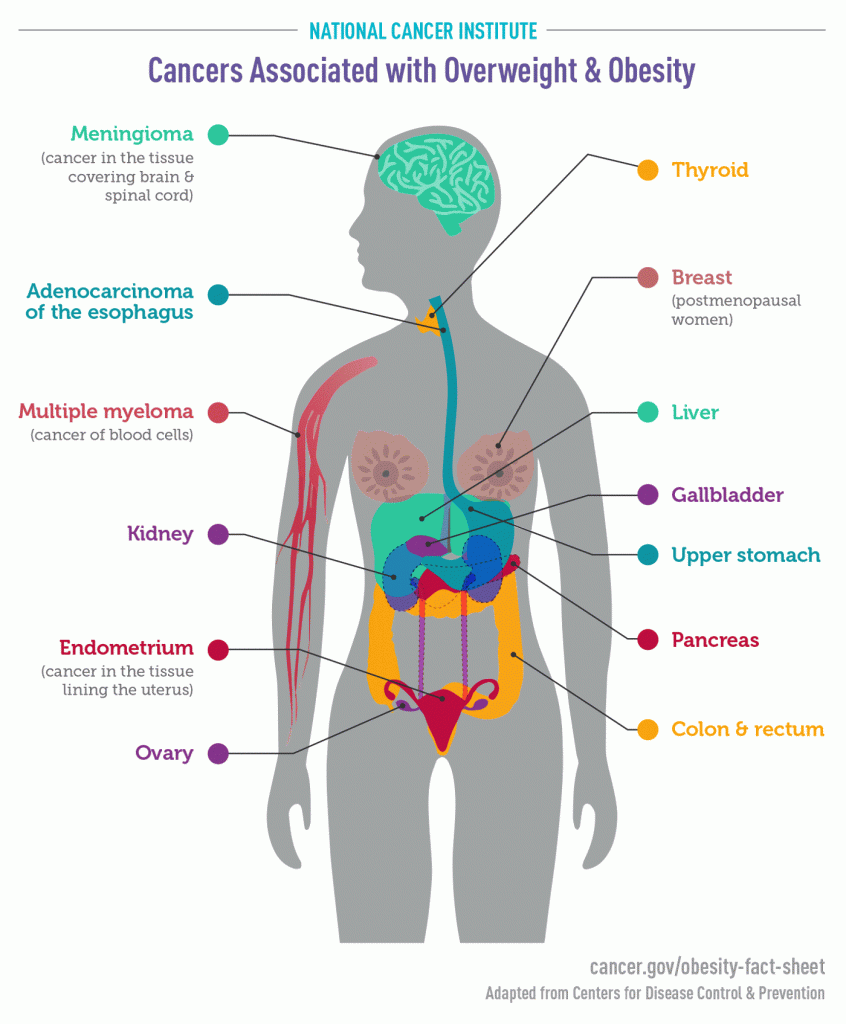Weight
There is consistent evidence that higher amounts of body fat are associated with increased risks of a number of cancers. (1)

A healthy weight loss program consists of:
- A reasonable, realistic weight loss goal
- A reduced calorie, nutritionally-balanced eating plan
- Regular physical activity
- A behavior change plan to help you stay on track with your goals
Keep in mind:
- Calories count
- Portions count
- Nutrition counts
- Even a small amount of weight loss can lead to big health benefits
- Strive to develop good habits to last a lifetime
- Discuss weight loss with your doctor before getting started
If you have a lot of weight to lose, set a realistic intermediate goal, maybe to lose 10 pounds. Remember that even a small amount of weight loss can lead to big health benefits.
Keep in mind that you want to develop lifestyle habits that will help you maintain your weight in a healthy range. A short-term “diet” that you “go on” and then “go off” is not the answer to long-term weight management.
Here are some key behaviors for losing weight:
- Getting regular physical activity
- Reducing calorie and fat intake
- Eating regular meals, including breakfast
- Weighing regularly
- Not letting small “slips” turn into large weight regain
Ask your doctor if you should have a referral to a Registered Dietitian Nutritionist (RDN). An RDN can provide personalized dietary advice taking into consideration other health issues, lifestyle, and food likes and dislikes.
Setting realistic goals and tracking your progress are key to your success. In fact, research has shown that those who keep track of their behaviors are more likely to take off weight and keep it off. A reasonable rate of weight loss is 1 to 2 pounds per week. (2)
See our sections on Diet and Exercise to learn more about fighting cancer while losing weight.
Weight increases risk of heart disease
Did you know that simply being overweight, without having any other risk factors, increases your likelihood of developing heart disease by 26%? Heart disease is the leading cause of death in America–for both men and women. Heart CT scans examine the arteries for calcium-containing plaque.
Sources
- Reproduced from Obesity and Cancer published by the National Cancer Institute.
- Adapted from Interested in Losing Weight? by nutrition.gov.
- Being overweight or obese is linked with heart disease even without other metabolic risk factors from the National Institute for Health Research




